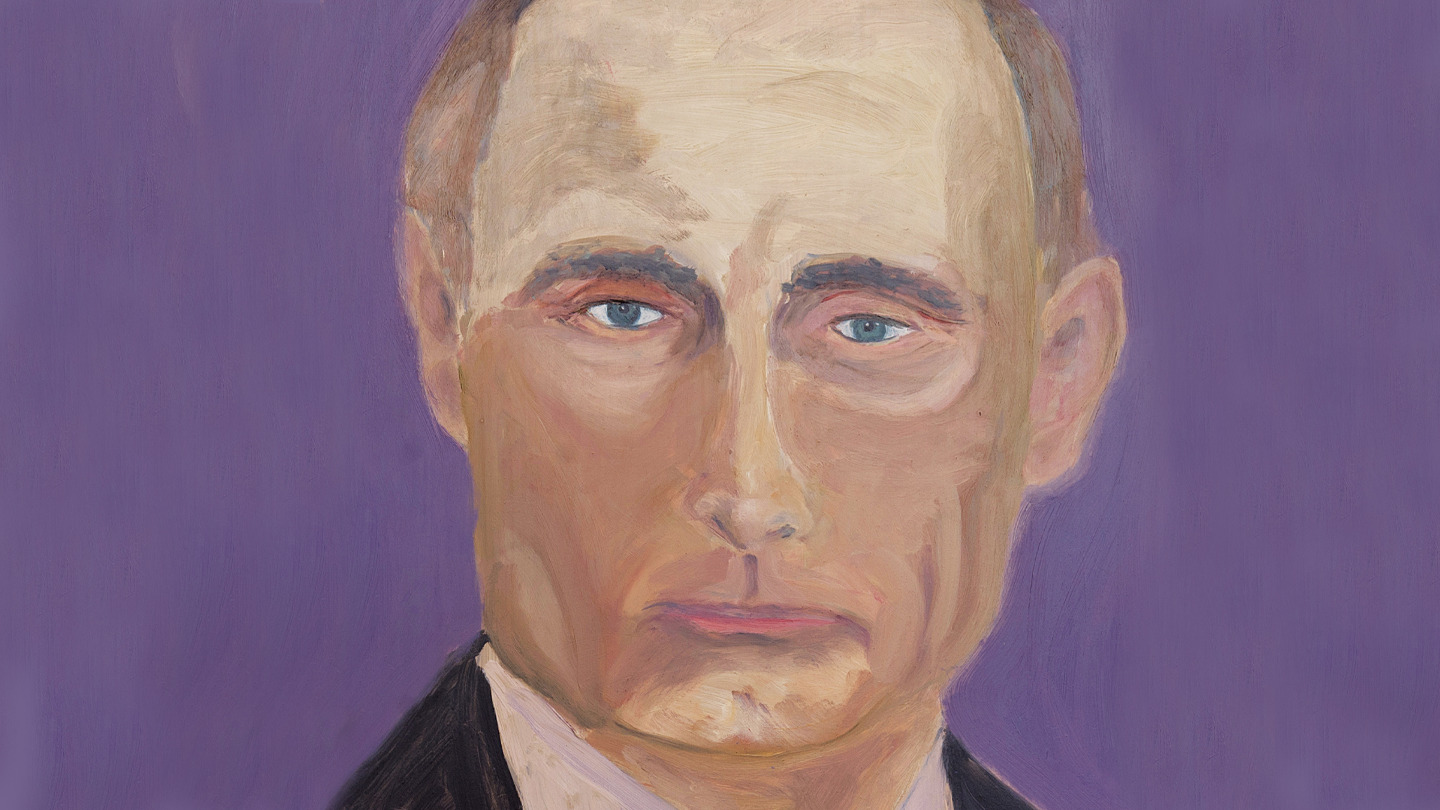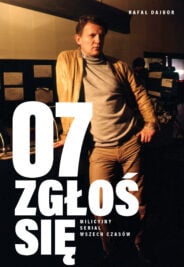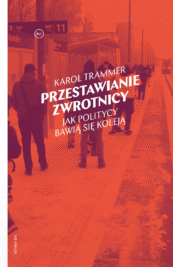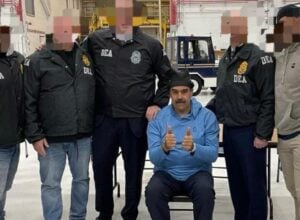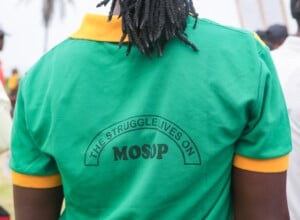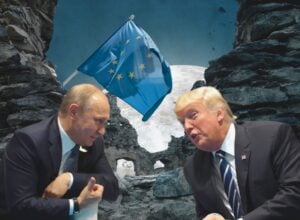Kaja Puto: Ukraińskie wojska posuwają się w głąb obwodu kurskiego. Według doniesień rosyjskich blogerów zaczęły też okopywać się na pozycjach. Co Ukraina chce w ten sposób osiągnąć?
Agnieszka Bryc: Cele operacji kurskiej podał Heorhij Tychy, rzecznik ukraińskiego MSZ. To zasadniczo ochrona życia obywateli i terytorium Ukrainy przed rosyjskimi atakami. Dodał też, że Kijów nie jest zainteresowany okupacją zajętej części obwodu kurskiego. Wiemy również, że chodzi o utrudnienie Rosji skutecznej ofensywy w innych miejscach linii frontu.
To ostatnie było dość czytelne dla wojskowych. Zanim poznaliśmy stanowisko władz w Kijowie, eksperci wojskowi wskazywali, że Ukraina ewidentnie próbuje rozproszyć natarcie Rosjan na froncie donbaskim, gdzie sytuacja jest naprawdę trudna. Zmuszenie ich do przerzucenia części swoich sił na północ, do obwodu kurskiego, mogłoby spowolnić napór na Torećk, Pokrowsk i Czasiw Jar i zapobiec przełamaniu frontu przez armię rosyjską. Czy manewr ten się uda, nie wiemy.
Z kolei Kreml od razu założył, że Kijów chce wzmocnić swoją pozycję w przyszłych rozmowach. Słusznie. Jeśli armii ukraińskiej uda się okopać na zajętym obszarze, wówczas dostanie do rąk kartę negocjacyjną „ziemia za ziemię”. A to wywraca stolik, czyli burzy strategię Kremla, która miała skłonić Ukrainę do przyjęcia warunków rosyjskich, czyli de facto kapitulacji.
I to będzie nowa rosyjska narracja? Chcieliśmy pokoju, ale oni nas zaatakowali?
Oczywiście. Już teraz rosyjska propaganda nagłaśnia doniesienia amerykańskiego dziennika „The Washington Post”, według którego przed operacją kurską Rosja i Ukraina planowały wysłać swoje delegacje do Kataru i negocjować w Doha warunki zawieszenia ataków na infrastrukturę krytyczną.
Słuchaj podcastu „Blok Wschodni”:
Ważniejszą kwestią jest jednak potrzeba przekonania Rosjan, że władze wszystko kontrolują, a najazd ukraiński jest sytuacją przejściową. Z tego powodu zarządzono w przygranicznych obwodach stan nadzwyczajny i ogłoszono operację antyterrorystyczną. Pozwala to Putinowi nawet nie spoglądać w kierunku doktryny wojennej, w myśl której w przypadku zagrożenia integralności terytorialnej państwa i konieczności samoobrony można użyć broni jądrowej. Putin doskonale wie, że jego protektor, czyli Xi Jinping, nie chce słyszeć o eskalacji jądrowej, a on sam nie chce przyznać się do tego, że pierwszy raz od drugiej wojny światowej wroga armia wkroczyła do Rosji i zajęła jej terytorium.
Putin wspomniał też o winie „kolektywnego Zachodu”, który chce rozsadzić Rosję od środka.
Nie mogło być inaczej. Cała polityka neoimperialna Putina opiera się na budowaniu mitu wrogich Anglosasów, czyli Amerykanów i Brytyjczyków, oraz ich natowskich pachołków – to o nas, Polsce i krajach bałtyckich, którzy od lat robią wszystko, żeby zniszczyć Rosję. Jeśli więc Ukrainie uda się utrzymać przyczółki w obwodzie kurskim, to „okaże się”, że Rosjanie odpierali tam nie terrorystów, lecz potężną, pancerną armię NATO. Putin przygotowuje narrację na każdy scenariusz. Słusznie, bo nie ma pewności, czy zdoła opanować kryzys.
A jak zareagowała medialna propaganda? W pierwszych dniach operacji kurskiej czołowi propagandyści wypowiadali się w dość niepewny sposób. Viralem stał się tweet redaktorki „Russia Today” Margarity Simonjan o treści: „módlmy się”.
Simonjan wrzuciła tego tweeta na samym początku rajdu ukraińskiego. W dodatku w wielkim uniesieniu i bez kontekstu. Początkowo nie wiadomo było, za co właściwie chce się modlić – za Rosję? Terytorium, które przechodzi w ręce wroga? Potem okazało się, że o korespondenta wojennego Jewgienija Poddubnego, który został ciężko ranny w obwodzie kurskim.
Wygląda na to, że Simonjan – podobnie jak inni propagandyści – działała spontanicznie, jeszcze bez instrukcji Kremla. Kiedy okazało się, że Poddubny żyje, lecz jest ciężko ranny, zmienili narrację. Dziś wiemy, że dostali instrukcje, by nie komentować strat rosyjskich, a zamiast tego skupić się na historiach ludzkich oraz na skutecznej ewakuacji z zajętych terytoriów.
Jednocześnie musieli pchnąć emocje Rosjan w bezpiecznym kierunku. Nieprzypadkowo wicerektor Akademii Dyplomatycznej rosyjskiego MSZ porównał wydarzenia w obwodzie kurskim do rajdu czeczeńskiego przywódcy Szamila Basajewa na Dagestan w sierpniu 1999 roku. Stał się on pretekstem dla Putina do rozpoczęcia drugiej wojny czeczeńskiej, która finałowo okazała się klęską ruchu niepodległościowego Czeczenów i pierwszą zwycięską wojną Putina.
Cieszący się reputacją dobrze poinformowanego telegramowy kanał WCzK OGPU donosi, że w wielu miejscowościach obwodu kurskiego panuje chaos, szerzy się szabrownictwo.
O chaosie i porzuceniu przez państwo pisał nie tylko ten związany z rosyjskimi siłami specjalnymi kanał na Telegramie. Relacjonowali to też inni blogerzy wojskowi. Rosyjska infosfera zalana była dramatycznymi relacjami osób, które, porzucone przez państwo, same musiały zadbać o siebie i uciekać w warunkach silnej wymiany ognia. Pojawiły się odezwy zrozpaczonych mieszkańców Sudży, którzy prosili Putina o interwencję. To nic nowego, w sytuacjach kryzysowych Rosjanie zwykle muszą radzić sobie sami. Obywatele nie są przecież priorytetem. Spójrzmy – ewakuowanych przesiedlano nie w głąb Rosji, lecz na inne terytoria okupowane, głównie do Zaporoża. A pomoc finansowa dla przesiedleńców jest mniej niż skromna. To 10 tysięcy rubli, czyli około 450 złotych.
W swoich wypowiedziach Putin stara się zrzucić winę za problemy z ewakuacją na przedstawicieli lokalnych władz. To klasyczny putinowski trik – zawinili źli bojarzy, ale sytuację uratuje dobry car?
Dokładnie. W ten sposób Putin zarządza każdą sytuacją kryzysową. Najpierw milczy. Jeśli nie da się problemu przemilczeć, wówczas „dobry car” beszta władze regionalne, wskazuje palcem i zarządza, by np. oczyścić obwód kurski z terrorystów, albo rozdaje pieniądze – tutaj mamy pomoc finansową dla przesiedleńców. Tym razem Putin mierzy się z dużym ryzykiem. Nie może ukryć faktu, że obca armia zajęła część Rosji. Zwłaszcza że przez prawie dwie dekady budował się na narracji imperialnej i wizerunku tego, który, jak kiedyś carowie, „zbiera ziemie ruskie”.
Czyli spełnić się mogą słowa Wołodymyra Zełenskiego o tym, że Putin zaczął swoje rządy od Kurska [katastrofy okrętu podwodnego Kursk w 2000 roku – przyp. aut.] i na nim skończy?
Byłaby to piękna klamra, ale wszystko zależy od rozwoju sytuacji. Po pierwsze od tego, czy Ukraina utrzyma się w obwodzie kurskim, a po drugie, czy Putin zdoła utrzymać dotychczasowe zaufanie Rosjan. Stąd tak szalenie ważne są narracje, które mają utrzymać spokój w społeczeństwie. Na badania opinii publicznej, te bardziej wiarygodne – przeprowadzone przez Centrum Lewady czy Russian Field [niezależnych ośrodków badania opinii publicznej – przyp. aut.] – będziemy musieli poczekać.
Aby drgnęły nastroje społeczne, impuls musi być naprawdę potężny. Po pierwsze, utrata terytorium musi być trwała. Na przykład do czasu, kiedy Putin byłby zmuszony wymienić je za ukraińskie tereny okupowane i wyjaśnić to obywatelom, którym od lat wpajał wielkoruski szowinizm i neoimperializm. Powodzenia. Po drugie, kampania informacyjna Kremla musiałaby okazać się nieprzekonująca. Jednak na razie radzi sobie dobrze. Po trzecie wreszcie – Zachód musi przestać milczeć.
To znaczy?
Kryzys Kremla to okazja, którą należy wykorzystać. Nie wykorzystaliśmy puczu Prigożyna, a to był poważny kryzys władzy w Rosji. W czerwcu uznaliśmy reelekcję Putina, choć wybory nie były demokratyczne, a wynik prawdziwy. Błąd polega na tym, że nie chcemy widzieć rys na monolicie putinowskiego reżimu. W dodatku daliśmy się zastraszyć, że kryzys w Rosji byłby katastrofą dla bezpieczeństwa międzynarodowego.
Zamiast tego powinniśmy wysłać trzy jasne sygnały. Pierwszy – Zachód jest gotowy na każdą konfrontację z Rosją. Problem w tym, że Kreml jest przekonany, że jest odwrotnie. Ma rację, bo działa rosyjskie odstraszanie, a powinno zachodnie. Drugi – Zachód jest gotowy rozmawiać z każdym następcą Putina. Byłoby to zachętą dla tych, którzy wbrew temu, co wmówiła nam kremlowska propaganda, mają ambicje polityczne. Trzeci – to zielone światło dla pełnej samoobrony Ukrainy. Kijów ma prawo bronić się przed Rosją, atakując cele w głębi jej terytorium, zniszczyć most krymski i infrastrukturę wojenną agresora.
Jeśli liczymy na powstrzymanie agresywnej Rosji, jej obywatele muszą odczuć konsekwencje sprowokowanej przez ich władze wojny. Dopóki nie zapuka ona do drzwi przeciętnego Rosjanina, nie ma szans na zmianę nastrojów społecznych.
Ale przecież już zapukała – w postaci częściowej mobilizacji. Nie wywołało to większych protestów.
To prawda. Ale protest był, tyle że pasywny. Zamiast wychodzić na ulice, setki tysięcy ludzi w panice opuszczało Rosję. Reżim był jednak sprytny, bo mobilizacja nie dotknęła w zasadzie dużych miast, gdzie funkcjonują główne środowiska opozycyjne, lecz regiony Rosji. Pytanie dziś sprowadza się więc do tego, czy Kreml wytrzyma presję, jaką tworzy operacja kurska, i jak zareaguje, jeśli ta będzie się rozwijać. Jeżeli dojdą do tego kolejne spektakularne porażki, kremlowski monolit może zacząć kruszeć.
I Rosja stałaby się demokratycznym krajem?
Ależ skąd, to myślenie życzeniowe. Mówimy o wybijaniu imperialnych zębów. Pamiętajmy, że Rosja cofa się wyłącznie wtedy, kiedy stoi na skraju katastrofy. W tym przypadku tą krawędzią może być przegrana wojna, utrata terytorium i kryzys gospodarczy. W nowej sytuacji, w zamian za uratowanie jej przed kolejną katastrofą geopolityczną, Zachód mógłby domagać się chociażby wymiany więźniów politycznych, organizacji wolnych wyborów, przywrócenia liberalnej opozycji. Skoro Rosjanie odrzucają wartości demokratyczne, wystarczy, żeby zachowywali pluralizm polityczny i porzucili imperialne ambicje, a przestaną stanowić zagrożenia dla sąsiadów i porządku międzynarodowego.
**
Agnieszka Bryc – doktorka nauk o polityce. Adiunktka na Wydziale Nauk o Polityce i Bezpieczeństwie Uniwersytetu Mikołaja Kopernika w Toruniu. Członkini Rady Ośrodka Studiów Wschodnich. Zajmuje się polityką zagraniczną Rosji oraz bezpieczeństwa Izraela.

 Wspieraj
Wspieraj 

 Wspieraj
Wspieraj  Wydawnictwo
Wydawnictwo 
 Zaloguj się
Zaloguj się 
